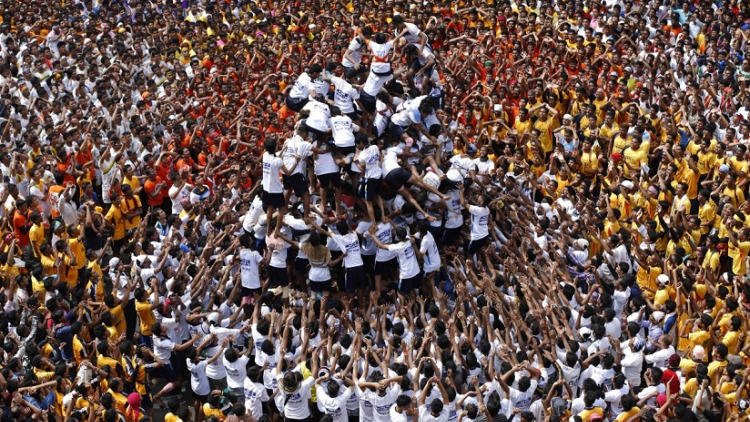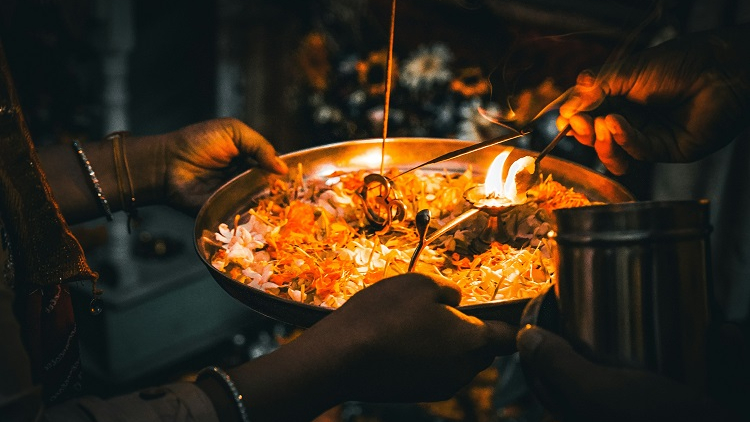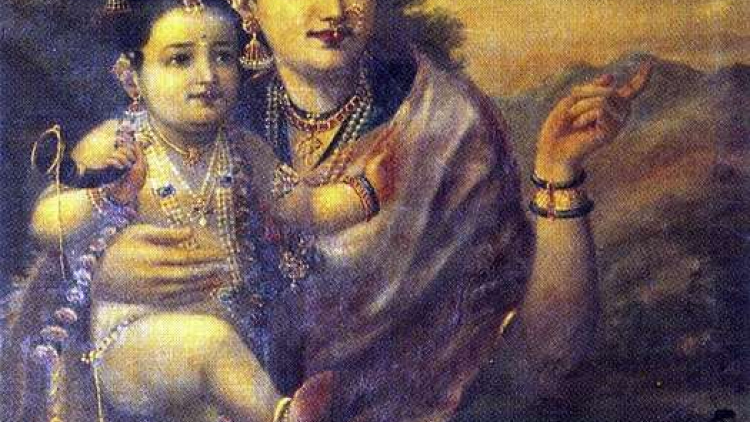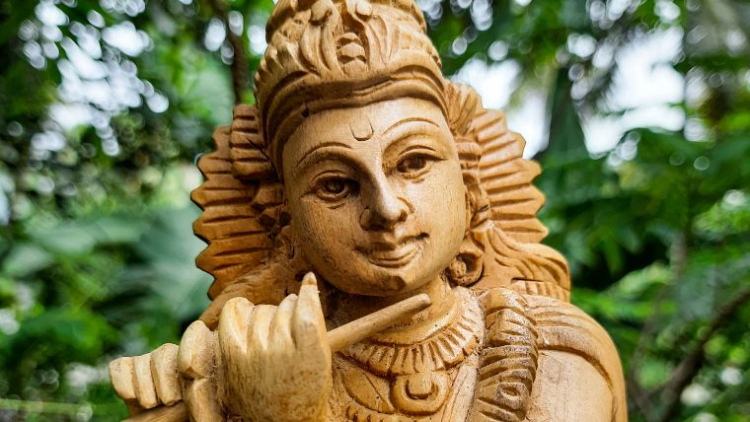HINDUISM | Janmashtami
Janmashtami is a Hindu festival celebrating the birth of Krishna, also called Govinda, who, tradition has it, was born on the eighth night of the sixth month of the hindu calendar, the month of Bhadra. The name Janmashtami is actually a combination of two Sanskrit words: janma and ashtami. Janma means ‘birth’ and Ashtami is the name of ‘the eighth day’ of the hindu lunar calendar. It always falls between mid- to-late August and mid- to-late September on the Gregorian calendar.
The celebration includes dances representing the life of Krishna, fasting, singing, vigils until midnight, altars decorated with images of Krishna, and children dressing up in costumes. During the fasting, the devotees recall Krishna and his transcendent activities by singing bhajans (devotional songs), reading sacred texts, cooking for the gods and decorating temples. One of the many traditions is Dahi Handi, in western India.
Dahi Handi means ‘clay jar filled of butter’, and the ritual consists of hanging a pot in a high place and building a human tower to reach and break it, spilling the contents. The goal of this activity, similar to a piñata, is to reach and break the pot, called the handi, which is filled with milk, yoghurt or butter and is hanging high up. The participants, grouped into teams called govinda pathak, build human towers (govindas) with the goal of reaching the handi and spilling out its contents. The young boy who climbs to the very top of the human tower tries to break the handi by hitting it with a blunt object, and when they succeed, the contents (and the shards of the pot) spill out on top of the whole crowd, symbolising the success achieved when everyone joins forces to work together.
An ancient legend has it that as a boy, Krishna was very mischievous and would steal pots of yoghurt and butter, eat the contents and leave them empty. So, people would leave their pots hanging in high places to keep him from reaching them, but the young god was ingenious and creative, and he would always manage to reach the pots.
In both India and around the world, there are many rituals related to the birth of Krishna (Janmashtami), including pilgrimages to the sites mentioned in the legends, prayers, dance and music performances, gift exchanges and different meals and traditional foods associated with these festivities. But it is important to bear in mind that not all Hindus are followers of Krishna. There are Hindus in Barcelona who do not celebrate Janmashtami, and those who do celebrate it may do so in the privacy of their own homes or in small public events.




